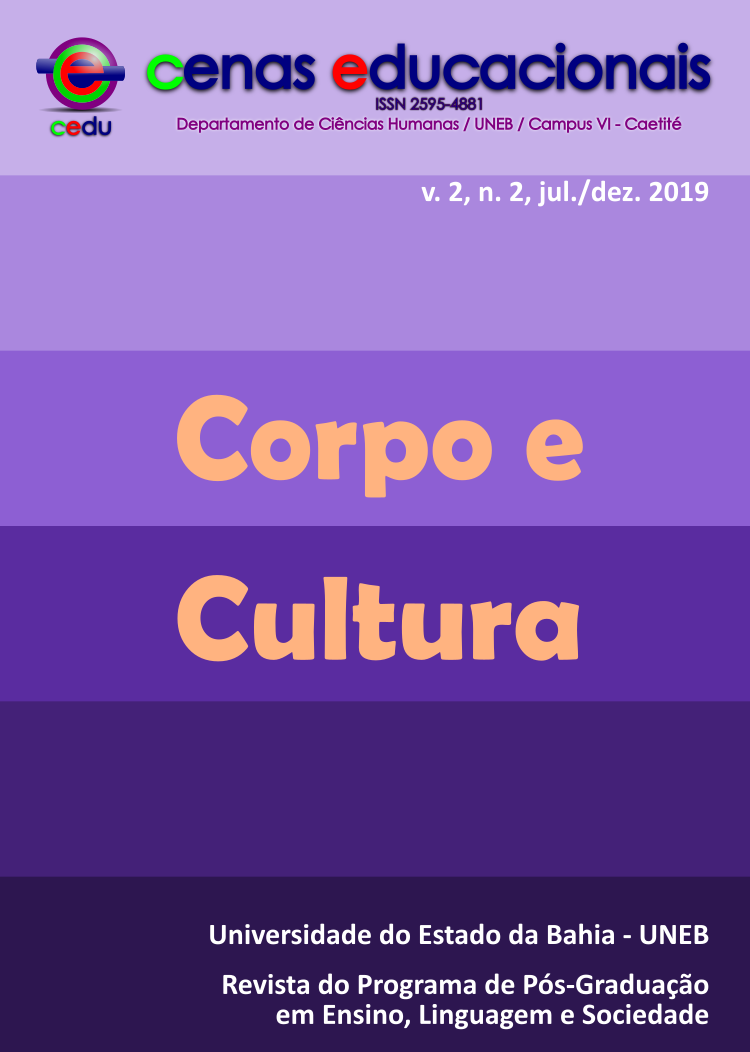PRESENCE AND ACTING OF WOMEN'S MOTHERS IN THE UNIVERSITY: DIALOGUE WITH TEACHERS AND STUDENTS
Keywords:
Women. University. Ingress. Permanence. DifficultiesAbstract
This work had as objective to analyze, from the specificities of the female condition, as it happens the ingress, the permanence and the participation of women who are “mothers, wives, housewives or working women”, in the education department – Campus XII, University State of Bahia. The analysis of the data presented here is based predominantly on the assumptions of the qualitative approach, which aided in understanding the breadth of the context of the problem. Considering that this is a field research, we used questionnaires and semi-structured interviews to identify the profile of students who study Higher Education in Campus XII. In order to determine the data collected, we used the technique of content analysis because it is a multiple verification of meanings about the same phenomenon. The results indicate that today the problems have been masked in very subtle ways, becoming more difficult to be problematized and because of this the women are confronted with battles that they themselves do not know that they need to be fought, with the greatest adversary being naturalization of its situation, because it leads to a state of inability to deny some of its rights, and this prevents the change from happening. The discussions made throughout the text also showed that the profile of women has changed, as well as their functions in society and because of this; the academy can no longer make this public invisible, because in the presence of a numerical predominance and substantial majority, they act as protagonists in diverse environments, and also in their own lives.Downloads
References
ANDRADE, Darlane Silva Vieira; SANTOS, Helena Miranda dos (Orgs). Gênero na psicologia: articulações e discussões. Salvador/BA, 2013. Disponível em: <http://newpsi.bvs-psi.org.br/ebooks2010/pt/Acervo_files/genero_na_psicologia.pdf> Acesso em: 20 set. 2017.
BADINTER, Elisabeth. Um amor conquistado: o mito do amor materno. Tradução de Waltensir Dutra. Rio de Janeiro: Nova Fronteira, 1985.
BARDIN, Laurence. Análise de conteúdo. Tradução Luís Antero Reto e Augusto Pinheiro. Lisboa: Edições 70, 2011.
BRASIL. Ministério da Educação e do Desporto. Secretaria de Educação Fundamental. Parâmetros Curriculares Nacionais (PCNs) - terceiro e quarto ciclos do ensino fundamental: introdução aos parâmetros curriculares nacionais. Brasília/DF: MEC/SEF, 1998.
CARVALHO, Débora Jucely. A conquista da cidadania feminina. Revista multidisciplinar da UNIESP, 2011. Disponível em: <http://www.colegiomaededeus.com.br/>. Acesso em: 26 mai. 2015.
DELPHY, Christine. Patriarcado (Teorias do). In: HIRATA, Helena. et al. (Orgs.). Dicionário crítico do feminismo. São Paulo/SP, 2009.
FERREIRA, Norma Sandra de Almeida. As Pesquisas Denominadas “Estado da Arte”. Educação & Sociedade. Ano XXIII, nº 79. 2002. Disponível em: <http://www.scielo.br/pdf/es/v23n79/10857.pdf>. Acesso em: 13 set. 2018.
FIORIN, Pascale Chechi; OLIVEIRA, Clarissa Tochetto de; DIAS, Ana Cristina Garcia. Percepções de mulheres sobre a relação entre trabalho e maternidade. Revista Brasileira de Orientação Profissional. São Paulo/SP, 2014. v. 15. n.1. p. 25-35. Disponível em: <http://pepsic.bvsalud.org/pdf/rbop/v15n1/05.pdf>. Acesso em: 02 jul. 2018.
GIL, Antônio Carlos. Métodos e técnicas de pesquisa social. 6. ed. São Paulo: Atlas, 2008.
GIL, Antônio Carlos. Como elaborar projetos de pesquisa. 5. ed. São Paulo: Atlas, 2010.
MARCONI, Marina de Andrade; LAKATOS, Eva Maria. Fundamentos de metodologia científica. 5. ed. São Paulo: Atlas 2003.
MINAYO, Maria Cecília de Souza (Org.). Pesquisa Social: teoria, método e criatividade. 21. ed. Petrópolis: Vozes, 2002.
SANTANA, Joelma Ramos; WAISSE, Silvia. Chegada e difusão da pílula anticoncepcional no Brasil, 1962-1972: qual informação foi disponibilizada às usuárias potenciais. Revista Brasileira de História da Ciência. Rio de Janeiro/RJ, v. 9, n. 2, p. 203-218, jul/dez 2016. Disponível em: <https://webcache.googleusercontent.com/search?q=cache:1zd_L5tlYkEJ:https://www.sbhc.org.br/arquivo/download%3FID_ARQUIVO%3D2794+&cd=1&hl=pt-BR&ct=clnk&gl=br>. Acesso em: 07 set. 2018.
SOBRINHO; José Dias. Universidade fraturada: reflexões sobre conhecimento e responsabilidade social. Avaliação: Revista da Avaliação da Educação Superior. Campinas; Sorocaba, SP, v. 20, n. 3, p. 581-601, nov. 2015. Disponível em: <http://www.redalyc.org/articulo.oa?id=219142567002>. Acesso em: 08 nov. 2018.
SOUSA, Cynthia Pereira de. Gênero e Universidade no Brasil: acesso ao Ensino Superior e condição feminina no meio universitário. In: GARCÍA, Consuelo Flecha; PALERMO, Alicia Itatí. (Orgs.). Mujeres e Universidad em España y América Latina. Buenos Aires/Argentina: Mino y Dávila, 2008. Disponível em: <http://www.academia.edu/23568409/G%C3%AAnero_e_Universidade_no_Brasil_acesso_ao_ensino_superior_e_condi%C3%A7%C3%A3o_feminina_no_meio_universit%C3%A1rio>. Acesso em: 05 nov. 2018.
Published
How to Cite
Issue
Section
License
Copyright
The submission of originals to Cenas Educacionais (Educational Scenes - CEDU) implies the transfer, by the authors, of the publication rights. The copyright for the manuscripts published in this journal is the author(s), with CEDU rights over the first publication. Authors(s) may only use the same results in other publications by explicitly indicating CEDU as the means of the original publication.
Creative Commons License
Except where otherwise specified, the terms of a Creative Commons Attribution-ShareAlike 4.0 International License license apply to the material published in this journal, which allows unrestricted use, distribution and reproduction in any medium provided the original publication is correctly cited.






 This work is licensed with a License
This work is licensed with a License 